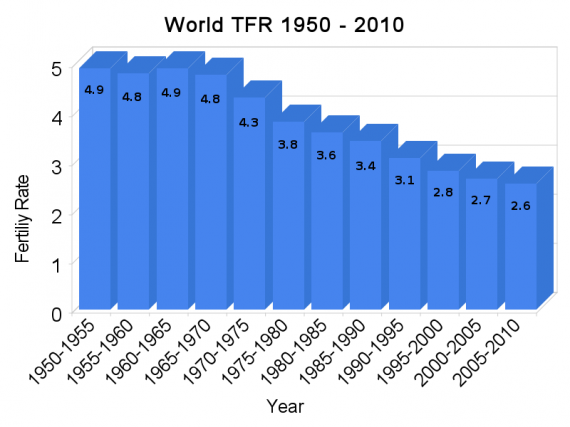There are some lessons to be learned from the Japanese experience of the last 2 decades, some of which should be used, whilst others should not.That said, a few observations are needed -
First, the true origin of the collapses in Japan from 1990 and the USA & the rest of the world from 2007, was not Private or Government Debt, nor was it the collapse of the Banks & the financial sector.
Whilst these were all part of the mix and part of the problem, they were essentially symptoms of the underlying cause and that cause is Demographics! As we know some 70% of the Economy, comes from the Consuming Public and the Economic changes arising from the changing Demographic mix is massive.
Following is a link to Japanese Population pyramids for 1950, 2007 & a projection for 2050. As can be seen, the 2050 projection will nearly be an inverted replica of 1950, with
1950 showing -
35.4% 0-14 years
59.6% 15-65 years
4.9% 65 years +
whereas the 2050 projection shows -
8.6% 0-14 years
51.8% 15-65 years
39.6% 65 years +
as at 2007, the transition was well under way, at -
13.5% 0-14 years
65.0% 15-65 years
21.5% 65 years +

That's all well and good, I hear you saying, but we know about the Baby Boomers & the Aging population.
Yes, but did you know that -
1) The USA TFR (Total Fertility Rate) Peaked in 1956 and continued at high rates until the US “official Boomer era” ended in 1964.
The World TFR however, continued at high rates until around 1970 (per following chart), but only started to decline substantially, after the introduction of China's one child policy, in 1979.

However, in Japan, Peak TFR came in 1947 at 4.5 children per woman and it then dropped swiftly to 2.0, in 1957, a level not seen in the USA until several decades later and still not seen on a Global basis.
So, I have explained all that, to highlight the following –
1) The cause of Japans Economic problem, is the Aging of their Population, which is reflected in many areas across the Economy, but Primarily it is reducing the Demand driven segment of their Economy and it is also reducing the Personal Tax Base because the % of worker numbers to the total population is shrinking, whilst it must increase the tax burden on remaining workers & the Private sector, IF Japan is to prevent itself from becoming a Bankrupt nation, as its Debt goes into the stratosphere.
2) Whilst there are some aspects common to the Japanese lost decades and where the USA & the rest of the world now reside, there are also some substantial differences, which are –
a) The rest of the world effectively propped up the Japanese Economy, to some extent, until 2005, as they (the ROW) continued with their Peak Baby Boomer Earning & Spending years.
After that, the same Demographic disease started to eat in Housing values in the USA & Europe, which in turn caused rising Personal Asset to Debt ratio’s, Banking problems & finally National Debt problems in Europe & the USA.
b) Commencing soon after the start of this century, there started an upward Energy Cost to GDP spiral, which continues now and it is set to increase its influence, over the next several decades.
In fact, Production of the major Global Energy source, being Oil, appears to have effectively Peaked in 2005 and that brought Demand Vs Supply into a clear focus, with the Oil Price spiking thru the roof, to reach US$147 a barrel in 2008. The Global Economy then “tanked” and the Oil Price retraced to $30 a barrel, before starting to surge again on the suggestion that the Global Economy would recover quickly and that therefore Demand would again exceed Supply.
We are now caught in “never-never-land”, where the Global Economy can never recover back to the “old business as usual” regime, because the Global Supply of Energy will never be able to match Demand, except for a limited amount of time and at greatly increased Energy Cost to GDP ratio’s!
c) No matter what may be thought of the arguments surrounding Climate Change and how much input man has into it &/or the capacity to resolve it, there is never-the-less one absolute historical & scientific fact and that is the Climate IS Changing.
Arising from that, as this century rolls on, there are some conclusions, which may be arguable on the peripherals, but it is certain that we are rising toward the top of this particular warming cycle and some consequences will be –
1) Rising average Temperatures
2) Some places will be Hotter & Wetter
3) Some places will be Hotter & Drier
4) Ocean Levels will rise
5) Dramatic Weather events may be more severe
Arising from the above, Agricultural & Food production will come under increasing stress, making more & more difficult to provide for the still growing Global Population.
Agricultural & Food production, will also come under increasing stress from a reduction in availability and an increasing cost of, ENERGY, which is set to decline in Crude Oil, but also many other sources, as this century rolls on.
So, whilst Japan had the benefit of being one of the few poor performing Economies, at a time when the rest of the Global Economy was Booming, the rest of the world is now descending into a long Economic Decline from a number of sources and it is difficult to see any likely saviour on the horizon!
Good luck & watch the Debt!

 Forum
Forum

 Home
Home 

 Album
Album 

 Help
Help

 Search
Search

 Recent
Recent 

 Rules
Rules 

 Login
Login

 Register
Register





 Pages:
Pages: 

